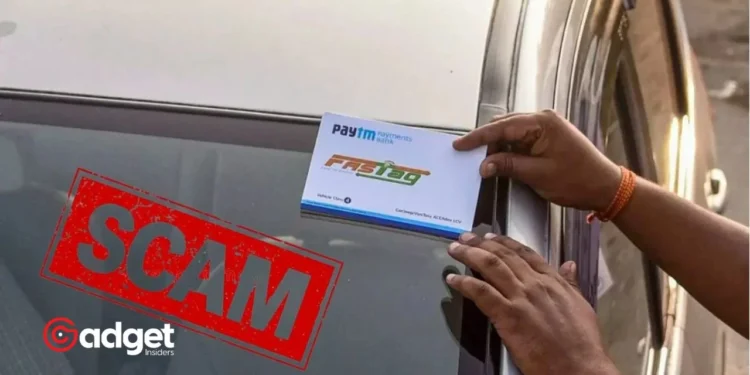In the digital age, our smartphones have become wallets, keys to personal data, and even the new frontier for cyber criminals. With a recent spike in scams targeting online toll payments, the FBI’s Internet Crime Complaint Center (IC3) is sounding the alarm on a sophisticated “smishing” campaign sweeping across the United States.

What is Smishing?
Smishing—a blend of SMS and phishing—is not a new threat, but it is becoming increasingly refined. These scams typically arrive as innocuous text messages, imitating notifications from well-known brands like banks, delivery services, and now, toll collection agencies. The texts prompt unsuspecting recipients to click on malicious links under the pretense of resolving issues like unpaid tolls or avoiding hefty fines.
Got a toll payment invoice from Fla.
Haven't been to Fla.
Scam ?
Or just pay,,, pic.twitter.com/5zcygSwAv1
— Rod's Basis Ranch (@rodgrisier1958) February 22, 2020
Alert: Deceptive Smishing Targets State Toll Services
According to the FBI, several thousand complaints have been lodged concerning smishing texts that claim to represent road toll services in at least three states. The fraudulent messages typically state, “We’ve noticed an outstanding toll amount of $12.51 on your record. To avoid a late fee of $50.00, visit https://myturnpiketollservices.com to settle your balance.” This new scheme not only impersonates state toll service names but also mirrors their communication style to appear legitimate.

A Nationwide Problem
The FBI warns that this scam is migrating from state to state, adapting its tactics along the way. As these criminals become more sophisticated, they tailor their attacks using local languages and branding, which makes the scams harder to immediately identify.
The Cost of Convenience
In a world where everything from parking fees to highway tolls is paid online, the convenience comes at a price. Recent statistics are alarming: in the U.S. alone, mobile users lose over $300 million annually to SMS scams. Every day, about 400,000 malicious texts are sent, making up approximately 4.8% of global messaging traffic.
How to Protect Yourself
The FBI advises against clicking on any links from SMS messages, especially those that claim to be from toll collection services. Instead, visit the official website directly through a secure browser. If you suspect you’ve been scammed, you can report it at www.ic3.gov.

Staying Safe: Best Practices for SMS Security
- Ignore Unsolicited Messages: If you receive a message from a service you do not use, delete it immediately.
- Avoid Clicking on Links: Even if you are expecting a message, it’s safer to log in through official channels rather than clicking on provided links.
- Regularly Update Your Contacts: Save numbers from your bank and regular services. This can help differentiate genuine messages from potential scams.
- Use Filters: Many messaging apps allow you to filter messages from unknown senders, which can help manage potential threats.
Final Thoughts
As technology evolves, so do the strategies of cyber criminals. By staying informed and vigilant, users can protect themselves from falling victim to these increasingly clever smishing scams. Remember, when it comes to personal data and online payments, it’s better to be safe than sorry.










